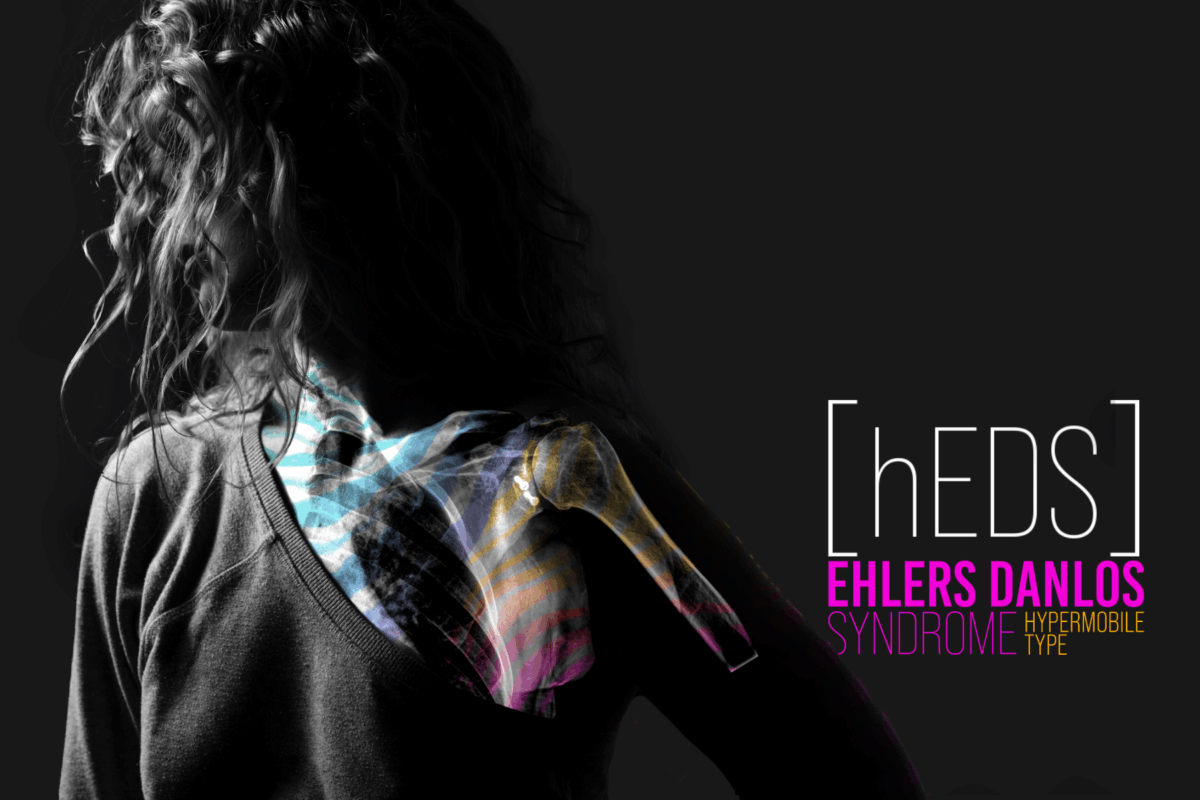As a creative momma, partner, graduate student, educator, colleague, (and what feels like an often absent) daughter, sister and friend with multiple chronic illnesses, life is…busy.
It didn’t feel quite busy enough, so naturally, I added a second degree to my doctoral program at Michigan State University, where I am currently a student in Information and Media as well as Curriculum, Instruction, and Teacher Education. As I grow older and “wiser” I’ve begun to recognize that adding things to my plate is a form of coping and distraction from my illnesses, which include Postural Orthostatic Tachycardia Syndrome [POTS], Mast Cell Activation Syndrome [MCAS], Migraine, TMJ, Cranial Cervical Instability [CCI], Narcolepsy, Dysautonomia, Raynaud’s, Tethered Cord Syndrome, and ADHD.
I began a self-documentary, Clinically [in]Significant, years ago when I was a master’s student in the School of Journalism but have not so publicly shared it until recently. Chronic illnesses—for me—are an oxymoron. Often, debilitating and infuriating me when I can’t do what I need and want to do. But they also propel me from anguish to action, so others don’t suffer in silence for decades with no answers. But I’m too exhausted to hide my Zebra stripes any longer, and I’m inspired to use my experience and creativity to expand the conversation on chronic illness and disability—especially surrounding people who don’t visually fit society’s collective image of ill or disabled. I also hope to show others they aren’t alone; and perhaps together, we can continue educating about the importance of communication, the power of words, and further the research desperately needed to find root causes and cures.
5 Invisible Symptoms
- Intense brain fog and forgetfulness which makes grad school and parenting especially adventurous 🙃.
- Chronic (sometimes debilitating) pain in nearly every nook and cranny of this body of mine, including frequent migraines.
- Daily joint subluxations & dislocations.
- Overwhelming sleepiness and fatigue that no amount of sleep or rest can overcome.
- Issues in nearly every system of my body that are inconsistently triggered and nearly impossible (at this time) to treat, including circulatory, digestive, musculoskeletal, nervous, reproductive, and integumentary (skin, sweat glands, etc.).
4 Things That Help Me Manage Pain
- Squishmallows—they are nearly the only thing I can use to comfortably lean back and sleep on.
- Heat and ice, sometimes both at the same time.
- Absurd amounts of Epsom salt and my walk-in bathtub.
- When to say “F**K it” and be ok with letting things go. This is especially challenging because I often use added work and projects as a distraction from the physical, mental, and emotional toll of my illnesses.
3 Ways My Life Has Changed
- EMPATHY—I’ve always worn my heart on my sleeve and my face is quite expressive, unable to hide what I am feeling most of the time. However, as my illnesses continue to take over my body and life, I try to judge less and listen more, because we all have some challenge, demon, illness, or circumstance invisible to others, making our lives feel heavy at one point or another. Words wield power, as do the expressions on our faces and the actions we take. You never know what someone is facing, and a little empathy can go a long way.
- FINDING MY PEOPLE—Feeling isolated and alone can come with the invisible and chronic illness territory, but isolation and lack of care will only do more damage. Finding the right people—a team of medical professionals who are willing to listen and learn from and with me is game changing. Though it’s taken decades, and though I still desperately seek help for unanswered issues, knowing I have doctors and their teams that believe me and are making efforts beyond what is expected to help me (and others like me) provides hope in what often feels like a hopeless situation.
- KNOWLEDGE IS POWER—Having actual diagnoses—attaching names to the physical chaos—is a relief, yet often a diagnosis comes with more questions than actual answers. Even when I’m thinking “You’re killing me, Smalls,” these answers still provide a jumping off point to dig into whatever research there may be (which for many of the illnesses I and other Zebras have is lacking). As a dual doctoral student in research-based programs, I find myself diving down research rabbit holes in hopes of finding crumbs to connect my symptoms, not just to treatments that may help me find relief, but potential root causes and cures. In turn, the many hours down these rabbit holes are ones that delay my own academic work. It’s a constant Catch-22, but progress is progress, so I keep moving forward, no matter how slow that forward progression may be.
2 People Who Inspire Me
There are far too many inspirational people to name just two, but I offer the cheesiest of answers and don’t care, because they are from my heart:
- My hubby and children—My husband is the main kiddo Uber driver, coach, housekeeper, grocery getter, scheduling and signing up for all the things on top of showing unbelievable patience, strength, support, and love. As my load at school increases and my health takes its toll, he never falters, and I could not do this life without him. My babies (12 and 9-years-old) inspire me with their hilarious sarcastic wit, curiosity, love, and fortitude with having a chronically ill and busy momma who does what she does so if they one day find themselves in a similar position, they will have more answers than I do and will know they can tackle any challenge life throws at them.
- My friends, professors, colleagues and students at Michigan State University—I’m so fortunate to work with and learn from some of the most brilliant and humanizing folks, folks who make my Ph.D. journey doable. When I think I just can’t do it anymore and the imposter syndrome sinks deeper into my thoughts, they chase it away and tell me exactly why I can and will do it. Their support, patience, and open mindedness keep me moving forward.
1 Thing You Want People to Know
This is something I’ve already said, but I feel it’s worth repeating: We never know what is happening beneath the surface. Appearances will never tell a person’s full story, so intentionally working to not judge others based on what we see in one tiny sliver of time can potentially make this world a little less harsh and a little more forgiving. One that’s a little more open rather than close-minded. A world where I feel hope and endless possibilities for future generations.
To read all of our previous zebra spotlights, please click here.


